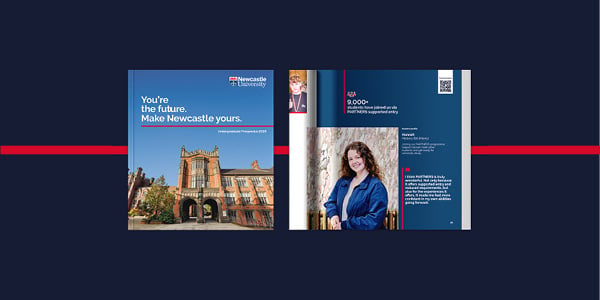
Want to know how your brain works when you’re revising and how you can make what you learn stay in your head?
Our School of Psychology focuses on the scientific and experimental study of mind and behaviour with many of our degree programme leaders recognised as experts in their field – in fact 87% of our research is world-leading or recognised as internationally excellent.
So, who better to ask for some ‘brain tricks’ to boost your revision?
Contents:
The ‘generation effect’
Revising is all about memory recall, but how can you master this? According to psychology lecturer Dr Billie Moffat-Knox what you need is the ‘generation effect’.
This phenomenon shows we are more like to retain information if we are active in our learning, not passive.
Reading requires less cognitive work from your brain. So, you could get a poorer test performance (revision not as effective) as your brain has not worked hard to acquire the information.
But, if we produce the information ourselves, rather than passively reading it, we are more likely to remember it. So, the bigger the effort required to process information, the greater the ‘generation effect’ i.e., you will remember more.
The SQ3R technique
Dr Moffat-Knox suggests that one way we can employ the generation effect during revision is by using a reading technique known as SQ3R.
Based on five steps – survey, question, read, recite and review – it makes revision more engaging and effective. Let’s take a closer look at each step:
- survey: when you start a new chapter take 5-10 minutes to skim the material. Pull out the main topics and ideas. Look at: layout; sections; highlighted words; graphs; pictures and study questions
- question: use questions to guide your reading. If a heading is “atomic structures” read it as “What is an atomic structure?” You now have a purpose for reading - you are looking for the answer
- read: while reading, look for answers to the questions you have created
- recite: once you have finished reading, revisit the questions you created. Can you answer them in your own words? If you can't, go back, re-read and take notes
- review: re-read all relevant parts again, including your questions
Now we have mastered an optimum learning method for our brains, this complex organ needs some rest too...
Taking breaks
Given what we know about cognitive attention and retention, Dr Moffat-Knox recommends you study in a fixed structure, for example:
- repeat the above cycle in the afternoon
- when you are studying, use SQ3R as much as possible
When creating your study structure, try a few different timings to figure out what ‘work-to-rest’ ratios are best for you, then adapt this to your important revision tool – the timetable.
List of achievements
To stay motivated and help visualise your progress, psychology lecturer Dr Francesca De Petrillo, recommends taking advantages of some basic learning principles and using a schedule of reinforcement...
Make a list of the things you want to achieve each day, and tick off the achievements as you work your way through your study schedule. This will help you visualise your goals into bite-sized chunks.
You can also reward yourself; this should reinforce your activities and keep you focussed. But, the rewards should be planned in advance so you don't waste time.
Habit formation
The discipline of good revision – conducting active learning to force your brain to work harder – boils down to creating good habits.
So, how does habit formation happen? Our scientists say this can be broken down into three critical parts: rewards, routine and context.
Applying this to revision, we need to have:
- a list of rewards
- our revision schedule, with the use of SQ3R and clear study breaks
- a peaceful space, where you will not be distracted from study
Setting up these conditions will help create a desired behaviour and, by repeating it, should help instil a habit.
Find out more:

Discover the Newcastle experience: Our Undergraduate prospectus will guide you through our world-class degrees, the support you can benefit from, and our beautiful city-centre campus.
